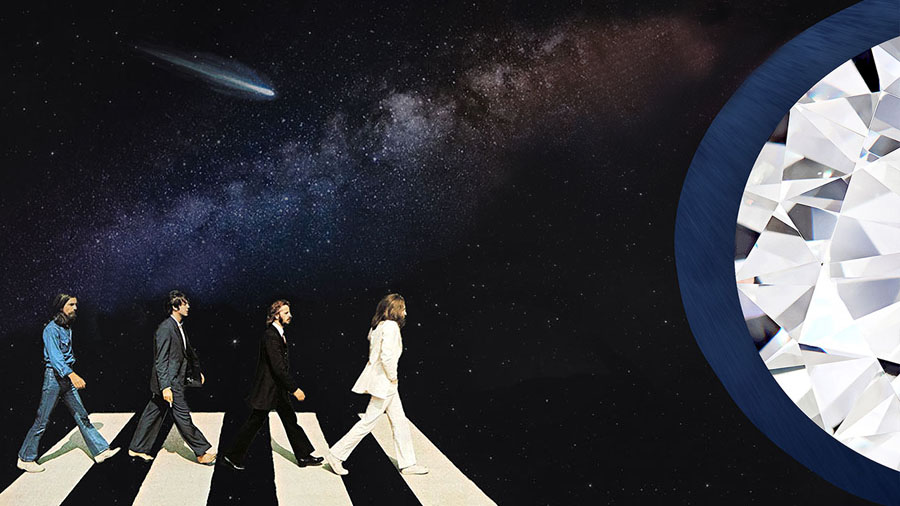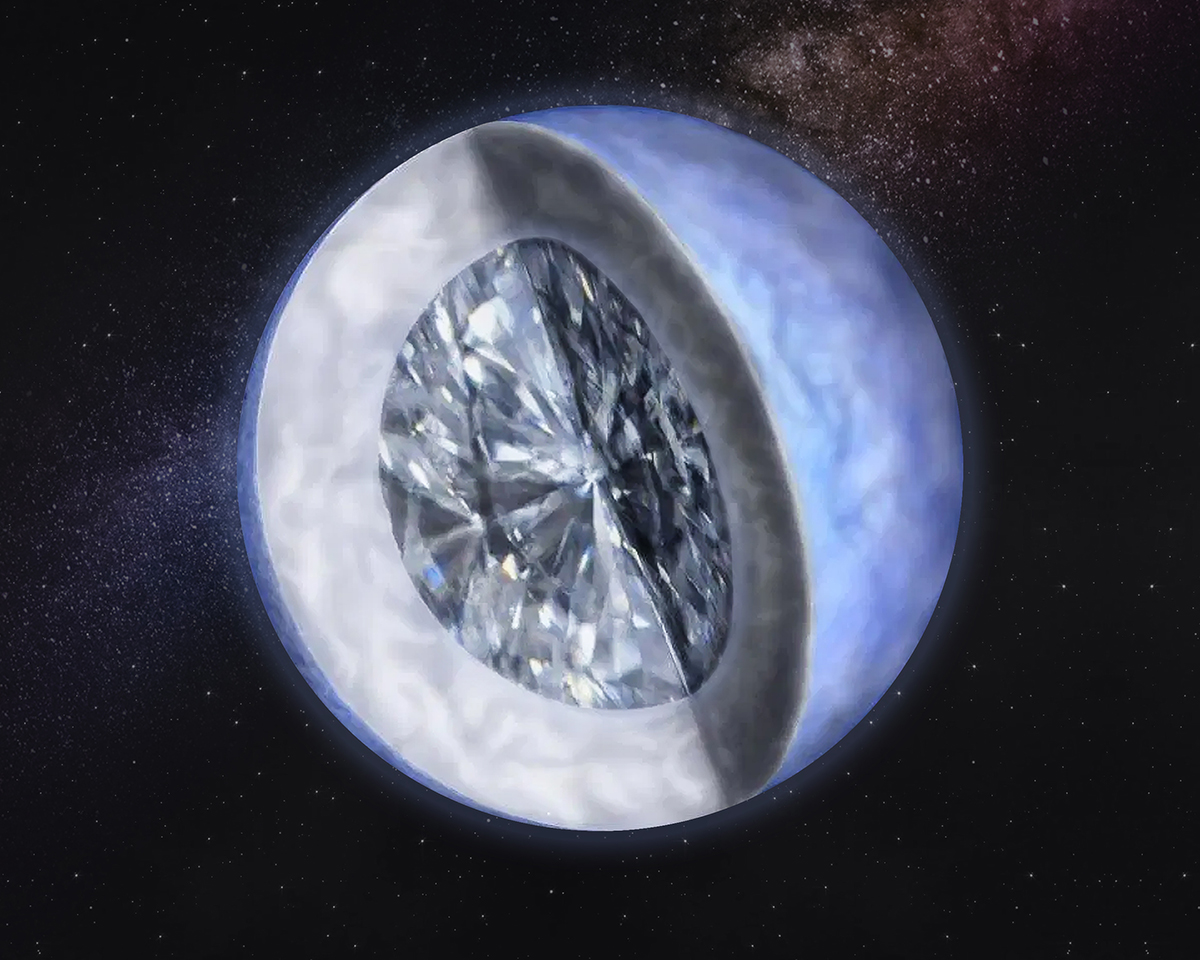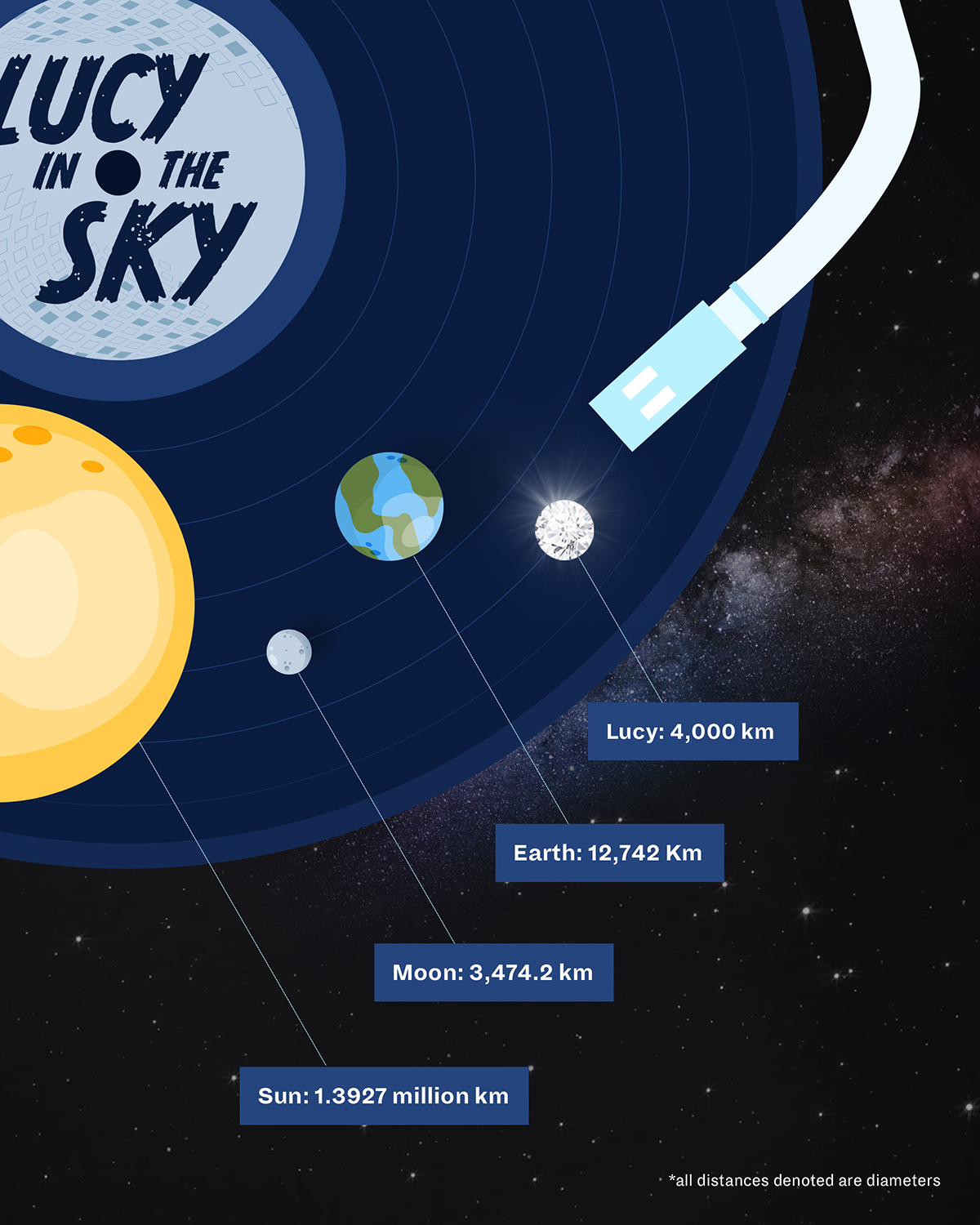Lucy In the Sky
Natural Diamonds are known to be found on earth. But in 2004, a first of its kind discovery changed everything. Can Natural Diamonds be seen beyond earth? We try to find the answer to this.

In 1967, The Beatles released one of their greatest hits, Lucy in the Sky with Diamonds. Originally, the song was inspired by a portrait drawn by John Lennon’s son, young Julian, about a girl quite literally among the stars that glittered like diamonds. In 2004, astronomers at the Harvard-Smithsonian Centre for Astrophysics made a startling discovery and created a prophetic connection of the iconic Beatles’ song to what could very well be the largest natural diamond in the known universe.
Identified initially as V886 Centauri or BPM 37093, this white dwarf is about 4000-km across, and is possibly the largest natural diamond anyone has ever seen. Inspired by The Beatles, the scientists who discovered her christened her, Lucy, quite literally in the sky with diamonds.
Its size? A staggering 10 billion trillion trillion carats, which makes the largest natural diamonds on planet earth seem invisible by comparison. It shone so brightly that it could be seen all the way from the constellation Centaurus, almost fifty light-years away from us. Scientists had been observing a low hum from the constellation, which was confirmed in 2004, to be a white dwarf – a giant dying star, whose surface has completely crystalized into diamonds.
Among earthly diamonds, the most expensive known natural diamond also happens to be the largest. At 3,106 carats, the Cullinan was discovered in the small Premier Mine in Pretoria, South Africa. Extracted in 1905, it weighed roughly 1.3 pounds. Although it has been cut into 9 large stones and several smaller stones now, the largest gem, the Cullinan 1, at around 530 carats, is still considered to be the largest colourless diamond on this planet, its price soaring beyond $400 Million, while the Parent Gem itself would be worth over $2Billion.
The largest coloured diamond on earth is the Golden Jubilee, weighing in at 545.76 carats. Consider that for a second, the Golden Jubilee is a little bigger than a golf ball. Lucy, at 10 billion trillion trillion carats, is sizeably larger than the Moon. It would need a jeweler’s loupe the size of the Sun to produce a diamond grade!
Lucy, The Largest Diamond in the known Universe would need a Jeweler’s Loupe the Size of our Sun to grade it.

Image by Harvard-Smithsonian Center for Astrophysics.
The fascinating formation of a celestial natural diamond
Identified only as a “chunk of crystallized carbon” by its discoverers at the Harvard-Smithsonian Center for Astrophysics, in 1992, Lucy was later observed to have a pulsating aura as a result of its core temperature dropping below 12,000 degrees Fahrenheit (6,600 Celsius). Scientists went on to study the star’s frequency spectrum to determine its composition, using an emerging science called asteroseismology. They used radio waves to understand that the star’s core was turning into diamonds, in a process similar to how geologists study the interior of the earth during earthquakes and other such natural phenomena. Continued research studies showed that after years of reacting to its carbon core, close to 90% of Lucy’s nuclear mass had crystallised into a diamond. She had assumed the shape of the largest diamond that is quite simply out of this world.

Abhijeet Borkar, an Astrophysicist and Space Researcher says: “White dwarfs are remnants of dead stars and their ultra-dense cores are primarily made up of carbon and oxygen. Over the course of billions of years, the hot core eventually cools down, turning liquid elements into solid, and converting the majority of its carbon into a crystal, under pressure from the enormous gravity of the white dwarf. This process is quite similar to that of forming diamonds on Earth.
“We have seen evidence of diamonds on Earth, and of nano-diamonds in meteorite samples, and the discovery of Lucy points to the possibility of diamonds among the stars.”
It is a remarkable end to the long life of a star and a poetic end to a massive celestial process. It’s very possible that our own sun might turn into a massive natural diamond, billions of years from now!”
And although Lucy might be the first of her kind, she definitely isn’t the only one. A similar crystallized white dwarf, the 11 million-year-old PSR J2222-0137 has been spotted almost 900 light-years away. Given its temperature, scientists theorise that it could possibly be older than the Milky Way galaxy!
Shine On you Crazy Diamond…
Though it was The Beatles who inspired the nickname Lucy, the star has proven to be a muse for many in her own right. As featured in the visions of directors and screenwriters alike, in Jim Jarmusch’s 2013 release, Only Lovers Left Alive, immortal vampires speak of a diamond “up there”, almost as big as a planet that “emits the music of a gigantic gong”. In John C. Wright’s science fiction novel, Count to a Trillion, we hear of the Diamond Star where the first human interstellar journey is destined to head.

Image: Creative rendition by Artist.
Considering the number of poems, songs and movies there exist, it is evident that artists have been enthralled by the charm and nostalgia of both natural diamonds and stars for ages. Lucy, nestled in a galaxy far, far away is indeed a star from the past, shining on. And if you ever decide to look through the skies above Canberra, you’ll see her twinkling smile from across the universe.
Photograph of Elon Musk is adapted from ‘Elon Musk at the 2019 Tesla Annual Shareholder Meeting’ by Steve Jurvetson, it is used under a Creative Commons license
